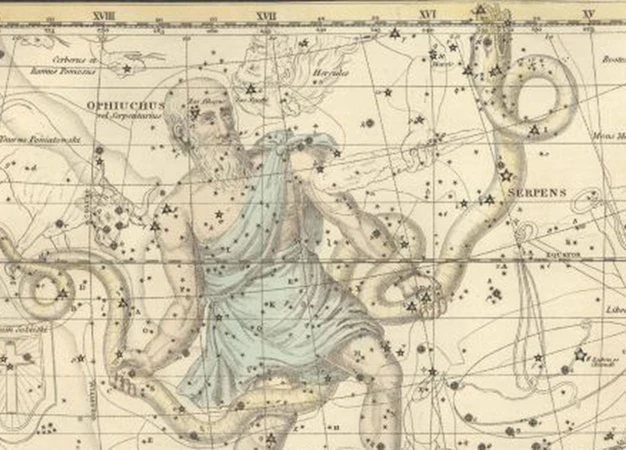Astrology, with its rich history and profound influence on human understanding, has always captured our curiosity. The ancient practice of interpreting celestial movements to gain insights into human behavior has been the bedrock of astrology. However, recent developments have stirred controversy and piqued interest among enthusiasts. The emergence of Ophiuchus, a 13th zodiac sign, has disrupted the traditional zodiac lineup, leaving many wondering about its impact on astrology and zodiac interpretations. In this article, we delve into the origins of astrology, introduce Ophiuchus and its traits, explore its compatibility with other signs, examine the controversies surrounding Ophiuchus, and reinterpret zodiac interpretations in light of this new addition. Join us on this journey as we uncover the implications of Ophiuchus and its role in shaping the future of astrology.
Contents
- The Origins of Astrology
- Introducing Ophiuchus
- Ophiuchus and the New Zodiac Lineup
- Controversies Surrounding Ophiuchus
- Reinterpreting Zodiac Interpretations
- Shaping the Future of Astrology
- Conclusion
-
Frequently Asked Questions
- 1. What is the significance of astrology in ancient civilizations?
- 2. How were the ancient zodiac signs determined?
- 3. What is the traditional zodiac lineup?
- 4. Who introduced Ophiuchus as a 13th zodiac sign?
- 5. What are the traits of Ophiuchus?
- 6. How does Ophiuchus impact other zodiac signs?
- 7. Is Ophiuchus compatible with other signs?
- 8. Why is Ophiuchus controversial?
- 9. How do astronomical changes impact astrology?
- 10. How is astrology adapting to the digital age?
- References
-
Frequently Asked Questions
- 1. What are the origins of astrology?
- 2. What are the traditional zodiac signs?
- 3. What is Ophiuchus?
- 4. What are the traits of Ophiuchus?
- 5. How does Ophiuchus impact the other zodiac signs?
- 6. How compatible is Ophiuchus with other signs?
- 7. Why is there controversy surrounding Ophiuchus?
- 8. What are the implications for horoscope predictions with Ophiuchus?
- 9. How does astronomical change play a role in astrology?
- 10. How is astrology adapting to the digital age?
- References
- Read More
The Origins of Astrology
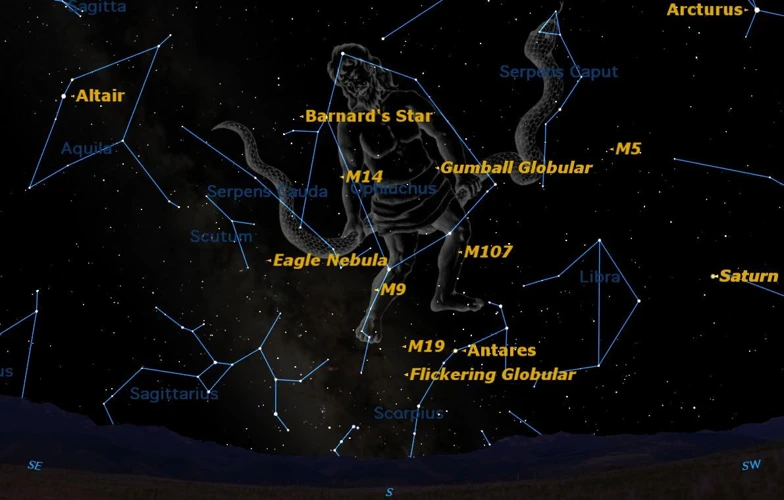
Astrology, rooted in ancient civilizations, has captivated humanity for centuries. The belief that the positioning of celestial bodies can provide insight into human behavior and destiny has its origins in the ancient zodiac signs. These signs, initially established by civilizations like the Babylonians and Greeks, were based on the observation of constellations in the night sky. Each sign was associated with specific characteristics and represented a distinct period of the year when the sun appeared to move through a particular constellation. The traditional zodiac, consisting of twelve signs, provided a framework for understanding personality traits, compatibility, and even future events. Interpretations of these zodiac signs have been recorded in ancient texts like the Egyptian “Book of the Dead,” which emphasized the language of the stars and their impact on human lives. The influence of astrology can also be seen in various cultural practices and traditions, such as the Celtic knot symbolism and the use of astrology in horoscopes.
1. Ancient Zodiac Signs
Ancient zodiac signs formed the foundation of astrology as we know it today. The Babylonians, around 2,500 years ago, were among the earliest civilizations to develop a system of astrology based on the twelve constellations along the ecliptic, known as the zodiac. Each zodiac sign corresponded to a specific constellation and was associated with particular qualities and characteristics. The Greeks later adopted this system, giving each sign its name and attributing mythological stories to them. For example, Aries represented the ram, Taurus symbolized the bull, and Leo embodied the lion. These signs were not only symbolic representations but also served as a means to understand an individual’s personality traits, social interactions, and possible future outcomes. The ancient zodiac signs were deeply rooted in cultural symbolism and played a significant role in shaping ancient societies’ beliefs and practices. Understanding the language of the stars allowed individuals to navigate their lives with guidance and meaning. The influence of these ancient zodiac signs can still be seen today in the way astrology continues to intrigue and captivate people around the world. To know more about Celtic symbolism in astrology, you can refer to the article on Celtic knot symbolism.
2. The Traditional Zodiac
The traditional zodiac, consisting of twelve signs, has been the cornerstone of astrology for centuries. Each sign in the zodiac corresponds to a specific period of the year and is associated with distinct personality traits and characteristics. Aries, the first sign, is known for its courage and determination, while Taurus embodies stability and reliability. Gemini represents versatility and adaptability, while Cancer is characterized by its nurturing and empathetic nature. The Leo sign exudes confidence and leadership qualities, while Virgo emphasizes practicality and attention to detail. Libra is associated with harmony and diplomacy, Scorpio with intensity and passion, and Sagittarius with adventure and exploration. Capricorn represents ambition and discipline, Aquarius highlights individuality and intellectual pursuits, and Pisces reflects sensitivity and compassion. The traditional zodiac has provided a framework for understanding ourselves and our relationships, guiding us through the language of the stars. However, the introduction of Ophiuchus has sparked debates and prompted a reevaluation of the traditional zodiac and its interpretations. To explore the impact of Ophiuchus on astrology and zodiac signs, continue reading about the influence of Ophiuchus personalities and history
Introducing Ophiuchus
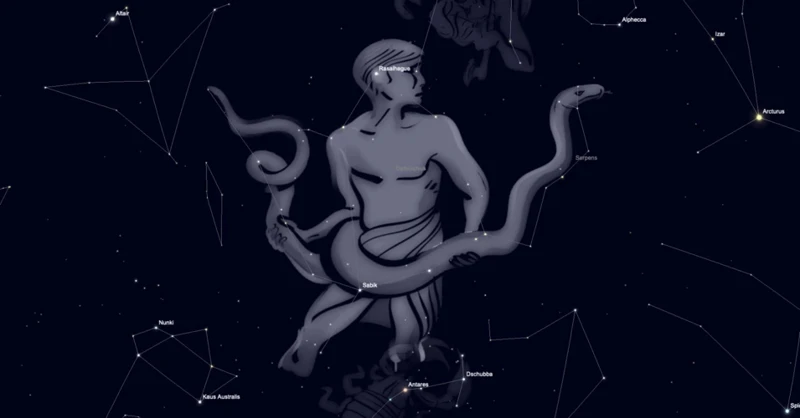
Ophiuchus, often referred to as the “13th zodiac sign,” has gained significant attention in recent years. This constellation represents a figure known as the “serpent bearer” or “snake charmer” and is positioned between Scorpio and Sagittarius in the night sky. Ophiuchus is not a new discovery but has been overlooked in traditional Western astrology due to the twelve-sign zodiac system. The traits associated with Ophiuchus include being a seeker of wisdom, intuition, passion for justice, and a desire to heal others. Individuals born under this sign are believed to possess strong leadership qualities and a profound understanding of the human condition. Ophiuchus has a rich history and symbolism that adds a new dimension to astrological interpretations. Exploring the influence of Ophiuchus on personalities and delving into its historical significance offers a deeper understanding of this intriguing addition to the zodiac lineup. To unlock the secrets behind Ophiuchus, we must delve into the language of the stars and uncover its unique qualities and symbolism.
Ophiuchus and the New Zodiac Lineup
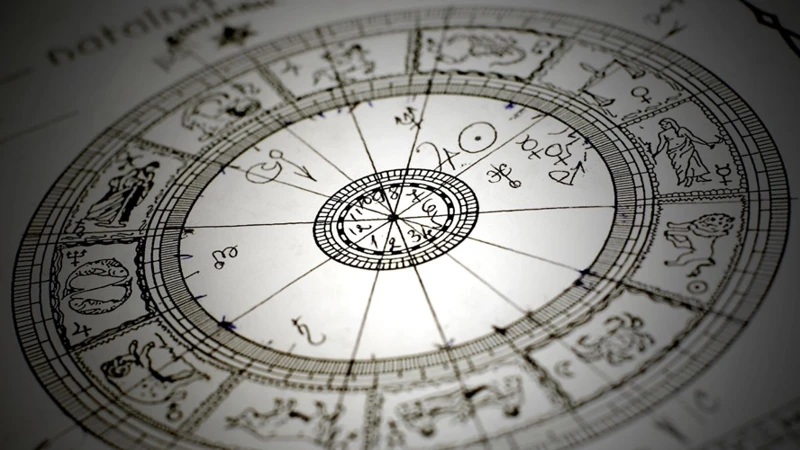
Ophiuchus, often referred to as the “13th zodiac sign,” came into the spotlight as astronomers discovered that the sun appears to pass through this constellation during a specific time period. This revelation prompted discussions about the inclusion of Ophiuchus in the zodiac lineup, which previously consisted of twelve signs. Ophiuchus is depicted as a figure holding a serpent, symbolizing healing and wisdom. Those born under this sign are believed to possess traits such as intuition, a thirst for knowledge, and a deep desire to seek truth. The addition of Ophiuchus to the zodiac lineup has shifted the dates associated with each sign. For example, individuals previously considered Scorpios may find themselves classified as Ophiuchus, and so on. This reconfiguration has sparked debates about the impact of Ophiuchus on astrological interpretations and compatibility. Some argue that Ophiuchus brings a fresh perspective and expands our understanding of the zodiac, while others resist accepting the new sign, fearing the disruption it may cause to long-held beliefs and interpretations of astrology. Nonetheless, Ophiuchus’s emergence underscores the ever-evolving nature of astrology and its deep connection to the language of the stars and the complexities of human personalities and history.
1. The Traits of Ophiuchus
Ophiuchus, the 13th zodiac sign, possesses a unique set of traits that set it apart from the traditional zodiac. Individuals born under this sign are said to possess qualities such as ambition, healing abilities, and a desire for knowledge and wisdom. Ophiuchus is often associated with the symbol of a serpent-bearing man, representing the Greek myth of Asclepius, the god of medicine. As such, those born under Ophiuchus are believed to have a natural inclination towards healing and may excel in professions related to medicine, holistic therapies, or even spiritual guidance. Their inquisitive nature and thirst for knowledge make them lifelong learners, always seeking to expand their understanding of the world around them. Ophiuchus individuals are known for their charisma and magnetic personality, often drawing others towards their energy and leadership qualities. While Ophiuchus has its unique traits, it is important to note that astrology is a complex field, and accurate interpretations require a holistic understanding of the entire birth chart, including the positions of other celestial bodies at the time of birth. To learn more about the influence of Ophiuchus on personalities and its history, you can [click here](/the-influence-of-ophiuchus-personalities-history/) for more information.
2. The Impact on Other Zodiac Signs
The addition of Ophiuchus to the zodiac lineup has sparked intense discussion and speculation about its impact on the other zodiac signs. As Ophiuchus falls between Scorpio and Sagittarius, individuals born during this period may question whether they truly belong to their original sign or the newly introduced one. The characteristics and traits that were once attributed to Scorpio and Sagittarius have now been influenced by the inclusion of Ophiuchus. This has led to a reconsideration of how astrologers interpret and analyze the personalities and compatibility of individuals belonging to these signs. Some argue that Ophiuchus adds complexity and nuance to the overall zodiac system, while others believe that it disrupts the established order and undermines the credibility of astrology. Despite the ongoing debates, astrologers are exploring ways to incorporate Ophiuchus into their readings and predictions, taking into account its unique qualities and influences. Ultimately, the impact of Ophiuchus on the other zodiac signs has sparked a reevaluation of astrological interpretations, pushing practitioners to deepen their understanding of the language of the stars and the intricate connections between signs. To learn more about the language of the stars, you can refer to our article on the language of the stars.
3. Ophiuchus Compatibility with Other Signs
Ophiuchus, the newly recognized 13th zodiac sign, brings a fresh perspective to compatibility in astrology. As with any zodiac sign, understanding how Ophiuchus interacts with other signs can provide valuable insights into relationships and dynamics. Ophiuchus, often represented by the serpent bearer, is characterized by qualities such as ambition, intuition, and a deep desire for knowledge. These traits can greatly influence compatibility with other signs.
Aries: Ophiuchus and Aries are both strong-willed and ambitious, creating a passionate and fiery combination. However, clashes of egos may arise due to their dominating personalities.
Taurus: Ophiuchus and Taurus share a love for stability and material comforts. Their combined determination makes them an unstoppable force, but their stubbornness may sometimes lead to conflicts.
Gemini: Ophiuchus and Gemini possess a deep curiosity and intellectual compatibility. They can engage in stimulating conversations and enjoy exploring new ideas together, fostering a strong mental connection.
Cancer: Ophiuchus and Cancer form an emotional and nurturing bond. Both signs prioritize emotional security, making their relationship deeply fulfilling and supportive.
Leo: Ophiuchus and Leo share a strong sense of self and a desire for recognition. Together, they create a power couple, but their egos may clash if they fail to appreciate each other’s individuality.
Virgo: Ophiuchus and Virgo are both analytical and detail-oriented, making them a highly compatible pair. They value precision and intellect, resulting in a harmonious and balanced relationship.
Libra: Ophiuchus and Libra share a love for harmony and balance. They have great potential for a deep emotional connection and can work together to create a harmonious environment.
Scorpio: Ophiuchus and Scorpio possess intense emotions, creating a passionate and transformative relationship. Their shared intensity can either lead to a powerful connection or bring about conflicts.
Sagittarius: Ophiuchus and Sagittarius are adventurous and seek knowledge and freedom. They can encourage each other’s personal growth and enjoy exploring the world together.
Capricorn: Ophiuchus and Capricorn blend ambition and practicality, making them a formidable team. They can support and inspire each other to achieve their goals, building a strong foundation.
Aquarius: Ophiuchus and Aquarius are both independent thinkers and have a shared interest in humanitarian causes. They can engage in intellectual discussions and create a unique and stimulating partnership.
Pisces: Ophiuchus and Pisces share a deep emotional connection and a compassionate nature. Together, they can create a safe and nurturing space for each other, fostering a strong bond.
While compatibility in astrology is multifaceted and influenced by various factors, understanding the potential dynamics between Ophiuchus and other signs can help individuals navigate relationships with greater insight and awareness.
Controversies Surrounding Ophiuchus
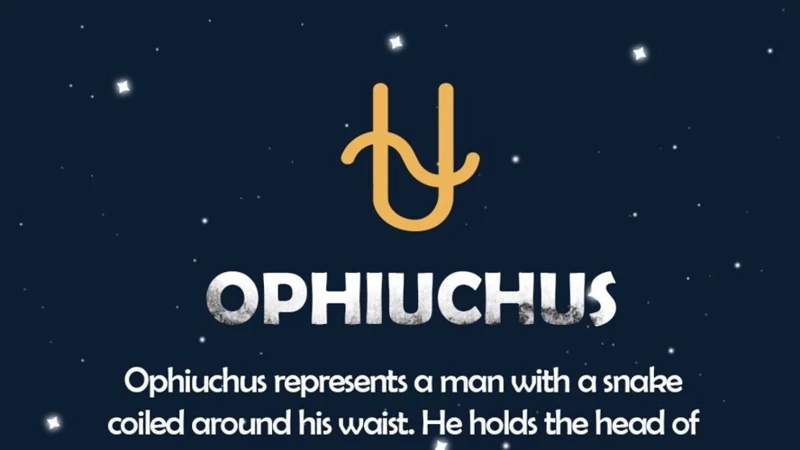
Controversy surrounds the addition of Ophiuchus as a 13th zodiac sign. Some astrology enthusiasts vehemently reject this new sign, arguing that it disrupts the longstanding tradition of the 12 zodiac signs and undermines the accuracy of horoscope predictions. They believe that introducing Ophiuchus dilutes the established personality traits and characteristics associated with the original signs. On the other hand, there are those who embrace the inclusion of Ophiuchus, seeing it as an opportunity for enhanced astrological insights and a chance to redefine the zodiac system. They argue that Ophiuchus brings new perspectives and dimensions to astrology, expanding the already complex web of symbolic relationships between celestial bodies and human lives. The controversy surrounding Ophiuchus sparks debates and discussions among astrologers, enthusiasts, and skeptics alike, challenging the very foundations of astrology and prompting reevaluation of its traditional practices and interpretations.
1. Rejecting the New Sign
The introduction of Ophiuchus as a new zodiac sign has not been without controversy. Many astrology enthusiasts and practitioners vehemently reject the inclusion of this 13th sign in the zodiac lineup. Their main argument is that it disrupts the well-established and centuries-old tradition of the twelve zodiac signs. Traditionalists argue that the addition of Ophiuchus creates confusion and undermines the accuracy and integrity of astrological interpretations. They believe that changing the zodiac lineup dilutes the distinct characteristics and meanings of each sign, making it more challenging to provide accurate horoscope predictions and personality assessments. Additionally, some reject the new sign on the grounds that it doesn’t align with their personal experiences and understanding of astrology. For them, the traditional zodiac is timeless and should not be altered to accommodate new astronomical discoveries. Despite the resistance, Ophiuchus continues to intrigue and challenge the established astrological community, igniting debates about the true nature and purpose of astrology.
2. Embracing the New Sign
Embracing the new sign of Ophiuchus has been a notable response among astrology enthusiasts. While some may resist change, others have eagerly welcomed this addition to the zodiac lineup. Those who embrace Ophiuchus believe that it brings a fresh perspective and enhances the accuracy of astrological readings. They argue that adding a 13th sign allows for a more nuanced understanding of personality traits and provides a more comprehensive view of an individual’s astrological profile. Ophiuchus is seen as a sign of transformation, healing, and wisdom, making it an exciting addition for those who resonate with its characteristics. Embracers of Ophiuchus argue that this new sign helps shed light on aspects of personality that may have been overlooked before, offering a more holistic approach to astrology. Embracing Ophiuchus opens up new avenues for compatibility readings and partnerships with the other signs, allowing for a deeper exploration of interpersonal dynamics. Those who see value in embracing the new sign of Ophiuchus see it as an opportunity for growth and expanded understanding in the world of astrology.
Reinterpreting Zodiac Interpretations
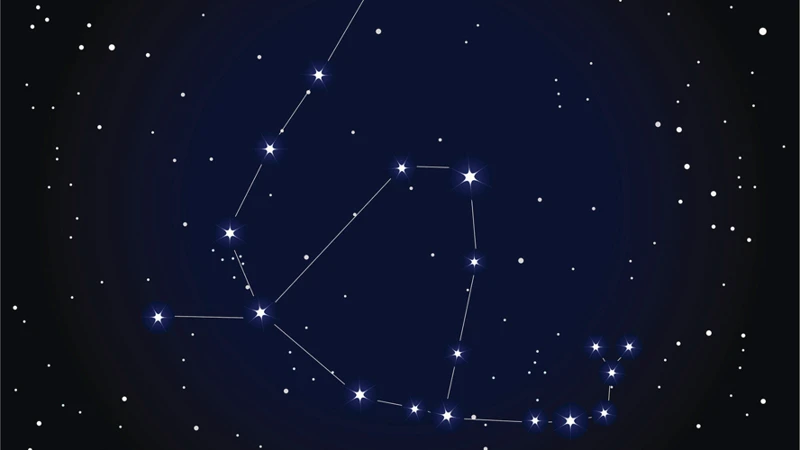
As Ophiuchus finds its place in the zodiac lineup, it raises questions about how this new addition may impact zodiac interpretations. One implication is the need to reassess horoscope predictions. With the introduction of Ophiuchus, individuals previously identified with one sign may now align with a different sign, potentially altering the predictions and personality traits associated with them. This shift requires a reevaluation of existing horoscope readings and interpretations to accommodate the new sign. The role of astronomical changes in astrology comes into focus. As our understanding of celestial movements evolves, so too does our understanding of the influence they have on human lives. Astrologers may need to incorporate these astronomical changes into their interpretations, considering new alignments, interactions, and influences among the zodiac signs. By embracing these reinterpretations, astrology can continue to evolve and adapt to the changing celestial landscape.
1. Implications for Horoscope Predictions
The addition of Ophiuchus to the zodiac lineup has significant implications for horoscope predictions. With the introduction of this thirteenth sign, horoscope readings need to be adjusted to incorporate its influence. Ophiuchus brings new personality traits and characteristics that were previously not accounted for in traditional astrology. Those born under Ophiuchus may find themselves seeking wisdom, healing, and the pursuit of knowledge. They are often seen as natural healers and have a passion for helping others. This addition also means that the dates associated with the other zodiac signs may need to be adjusted to accommodate Ophiuchus. The shifting of dates and the inclusion of Ophiuchus in horoscope predictions can lead to a more nuanced understanding of individual personalities and life paths. Astrologers may need to reinterpret and recalibrate their interpretations to provide accurate and comprehensive horoscope predictions for those born under the new zodiac lineup. It is an exciting time for astrology enthusiasts as they explore the implications and possibilities that arise from the inclusion of Ophiuchus in horoscope predictions.
2. The Role of Astronomical Changes in Astrology
The study of astrology is closely intertwined with the movements and positions of celestial bodies. Astrologers have long relied on astronomical observations to make predictions and interpretations. The role of astronomical changes in astrology is significant, as these changes can affect the alignment of the zodiac signs and subsequently influence the interpretations associated with them. For instance, the discovery and inclusion of Ophiuchus as a 13th zodiac sign has sparked debates and discussions among astrologers and enthusiasts. This recalibration of the zodiac lineup aligns with changes in the Earth’s axial tilt and the shifting positions of stars and constellations over time. As these astronomical changes occur, there is a ripple effect on astrological interpretations, which impacts the understanding of personality traits, compatibility, and horoscope predictions. It highlights the dynamic nature of astrology and reinforces the need to reevaluate and adapt astrological systems to accommodate new astronomical discoveries. The role of astronomical changes in astrology cannot be understated, as it challenges traditional beliefs and encourages a deeper exploration of the cosmos and its influence on human lives.
Shaping the Future of Astrology

As we navigate the ever-evolving world, astrology too must adapt to the changing times. While the addition of Ophiuchus to the zodiac lineup has caused controversy, it also presents an opportunity to reassess and reshape the future of astrology. One implication of this new sign is the need to reevaluate the entire zodiac system. Astrologers and enthusiasts are now exploring the idea of incorporating Ophiuchus into personalized horoscopes and astrological readings, charting a new course for interpreting celestial influences. Additionally, astrology is experiencing a digital revolution, with the advent of technology providing easy access to personalized horoscopes, compatibility analyses, and astrological insights. Online astrology platforms, social media astrology influencers, and astrology apps have become popular ways for people to engage with this ancient practice. This digital age has created a global community of astrology enthusiasts who can connect and share their experiences, expanding the reach and impact of astrology. However, as we enter this new era of astrology, it is essential to navigate the fine line between embracing technology and preserving the authenticity and integrity of the practice. The future of astrology lies in striking a balance between tradition and innovation, ensuring that astrology continues to captivate and inspire as it evolves to meet the needs and interests of a modern audience.
1. Reassessing Zodiac Systems
Reassessing zodiac systems in light of the inclusion of Ophiuchus has become a topic of great debate among astrologers and enthusiasts. The addition of this 13th zodiac sign has raised questions about the accuracy and validity of the traditional zodiac lineup. Some argue that the introduction of Ophiuchus disrupts the balance and symbolism that has been established for centuries, while others believe it brings a much-needed update and a broader perspective to astrology. Astrologers who support the inclusion of Ophiuchus argue that it allows for more accurate interpretations and a more nuanced understanding of personality traits and compatibility. They advocate for a reassessment of the zodiac systems to accommodate this new sign and its influence on astrological interpretations. However, critics of the new sign maintain that it undermines the traditional zodiac and the consistent symbolism that has been established over time. They fear that the addition of Ophiuchus may dilute the significance and precision of astrological readings. Ultimately, the reassessment of zodiac systems is an ongoing process that requires careful consideration of both the historical foundations of astrology and the potential for growth and evolution within the field.
2. Astrology in the Digital Age
Astrology has not remained untouched by the advancements of the digital age. With the rise of the internet and smartphone technology, astrology has found a new and expansive platform for reaching a global audience. Online astrology websites and mobile applications have made it easier than ever for people to access personalized horoscopes, birth charts, and astrological insights. These digital platforms not only provide daily horoscopes but also offer in-depth analysis and interpretations of astrological events. They allow users to input their birth details and receive personalized readings based on their unique astrological profiles. The digital age has enabled the creation of astrology communities and forums where enthusiasts can connect, share, and discuss their astrological experiences and insights. Additionally, social media platforms have become a popular space for astrologers to share their knowledge and predictions, reaching a wide audience with just a few clicks. Astrology in the digital age has brought convenience, accessibility, and interconnectedness to this ancient practice, allowing individuals from all walks of life to explore and engage with astrology more easily than ever before.
Conclusion
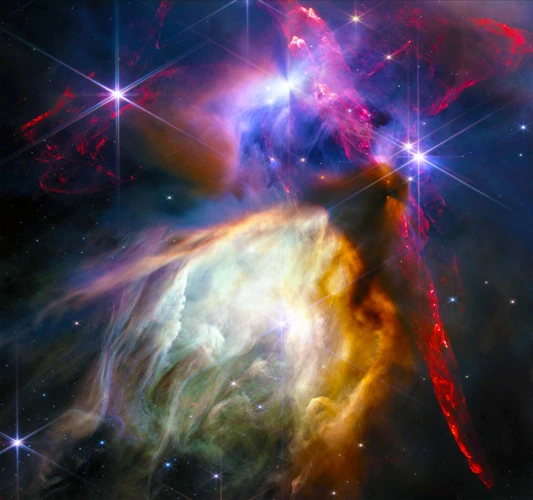
In conclusion, the emergence of Ophiuchus has undoubtedly sparked controversy within the realm of astrology. While some reject this new addition to the zodiac lineup, others embrace it as a valuable tool for exploring new dimensions of personality traits and compatibility. Regardless of where one stands on the Ophiuchus debate, its introduction calls for a reassessment of traditional zodiac systems and a reevaluation of horoscope predictions. As astrologers navigate the digital age, new challenges and opportunities arise when it comes to disseminating astrological knowledge and reaching a wider audience. With advancements in technology, astrology has the potential to evolve and adapt to the changing times, offering personalized insights and guidance. As we shape the future of astrology, let us not forget the origins and roots of this profound practice, honoring both its historical significance and its ability to resonate with individuals in their quest for self-discovery and understanding.
Frequently Asked Questions
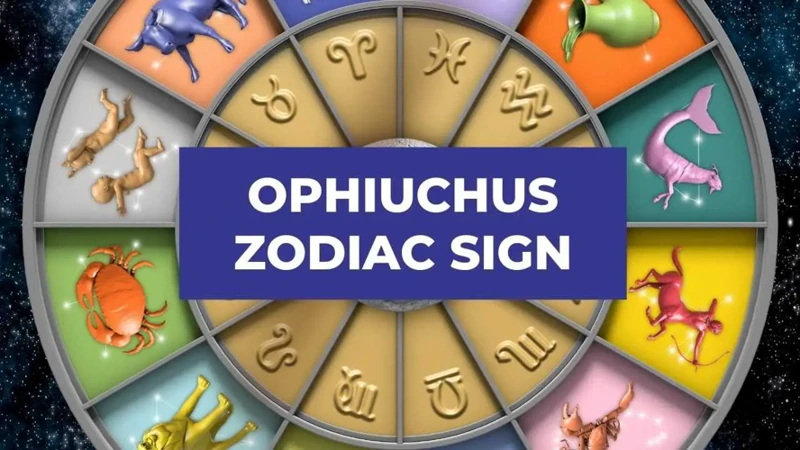
1. What is the significance of astrology in ancient civilizations?
Astrology played a prominent role in ancient civilizations as it was believed to provide insights into human behavior, destiny, and even future events. It served as a tool for understanding personality traits, compatibility, and making important life decisions.
2. How were the ancient zodiac signs determined?
Ancient zodiac signs were determined by observing the positions of constellations in the night sky. Civilizations like the Babylonians and Greeks divided the sky into twelve equal parts, assigning specific constellations to each resulting zodiac sign.
3. What is the traditional zodiac lineup?
The traditional zodiac lineup consists of twelve signs: Aries, Taurus, Gemini, Cancer, Leo, Virgo, Libra, Scorpio, Sagittarius, Capricorn, Aquarius, and Pisces. Each sign is associated with specific dates and represents different personality traits.
4. Who introduced Ophiuchus as a 13th zodiac sign?
Ophiuchus, the 13th zodiac sign, was proposed by ancient astrologers but was not included in the traditional zodiac lineup. It gained attention in recent years due to renewed interest and discussions surrounding its inclusion.
5. What are the traits of Ophiuchus?
Ophiuchus is associated with traits such as intuition, healing abilities, and a deep connection with spirituality. People born under this sign are believed to be seekers of wisdom and knowledge.
6. How does Ophiuchus impact other zodiac signs?
The inclusion of Ophiuchus can lead to a reevaluation of zodiac sign interpretations, as it introduces a new dynamic within the zodiac system. Some believe that Ophiuchus may have a significant influence on the individual traits and compatibility of other signs.
7. Is Ophiuchus compatible with other signs?
Ophiuchus is said to have strong compatibility with certain signs such as Gemini and Sagittarius, while potentially challenging the compatibility of other signs.
8. Why is Ophiuchus controversial?
Ophiuchus is controversial because its introduction challenges the familiar twelve-sign system that people have known and identified with for centuries. Some argue that it disrupts established astrological interpretations, while others embrace its addition as a means for more accurate personality assessments.
9. How do astronomical changes impact astrology?
Astronomical changes, such as the inclusion of Ophiuchus, can lead to reevaluations and adjustments in astrological interpretations. These changes prompt astrologers to reassess their understanding of zodiac interactions and the influence of celestial bodies on personality traits and relationships.
10. How is astrology adapting to the digital age?
Astrology is embracing the digital age, with online platforms providing easy access to personalized horoscopes, birth charts, and compatibility readings. The availability of astrological information on the internet has made it more accessible to a wider audience.
References
Frequently Asked Questions

1. What are the origins of astrology?
Astrology has its roots in ancient civilizations such as Mesopotamia, Egypt, and Greece. These cultures observed the movements of celestial bodies and believed that they could influence human behavior and events on Earth.
2. What are the traditional zodiac signs?
The traditional zodiac consists of twelve signs: Aries, Taurus, Gemini, Cancer, Leo, Virgo, Libra, Scorpio, Sagittarius, Capricorn, Aquarius, and Pisces. These signs are based on the position of the sun at the time of a person’s birth.
3. What is Ophiuchus?
Ophiuchus is a lesser-known constellation that lies along the ecliptic, the apparent path of the sun. In astrology, it is referred to as the “serpent-bearer” and represents the archetype of a healer.
4. What are the traits of Ophiuchus?
Those born under the sign of Ophiuchus are said to be seekers of wisdom, healers, and possess strong intuition. They are often known for their magnetic personalities and have a drive to make a positive impact on the world.
5. How does Ophiuchus impact the other zodiac signs?
With the addition of Ophiuchus, the dates associated with each zodiac sign have shifted. This means that individuals who previously identified with a particular sign may now find themselves belonging to the sign that comes before or after their original sign.
6. How compatible is Ophiuchus with other signs?
Compatibility between Ophiuchus and other signs can vary. Since Ophiuchus is a relatively new addition to astrology, there is limited information about its compatibility with other signs. However, those born under Ophiuchus are often seen as having a harmonious relationship with Scorpio and Pisces.
7. Why is there controversy surrounding Ophiuchus?
Some individuals reject the inclusion of Ophiuchus as a zodiac sign, arguing that it disrupts the established system and creates confusion. Others embrace Ophiuchus, believing that it adds depth and complexity to astrological interpretations.
8. What are the implications for horoscope predictions with Ophiuchus?
The addition of Ophiuchus may require astrologers to reassess and adjust their interpretations for horoscope predictions. It introduces a new layer of complexity and potential influences that need to be considered when creating forecasts.
9. How does astronomical change play a role in astrology?
Astronomical changes, such as the inclusion of Ophiuchus, can challenge the traditional astrological system. It highlights the need to reconcile ancient astrological practices with advancements in scientific understanding, inviting a conversation about the evolving nature of astrology.
10. How is astrology adapting to the digital age?
In the digital age, astrology has become easily accessible through online platforms, mobile applications, and social media. This has allowed for a wider dissemination of astrological information and the development of personalized horoscope readings tailored to individual users.
